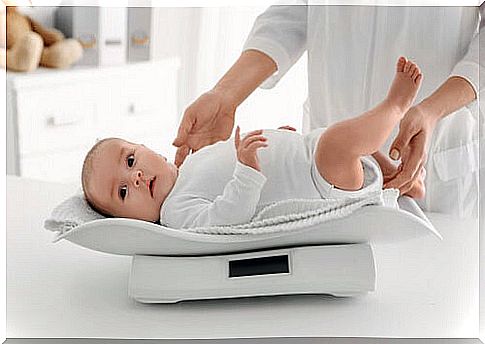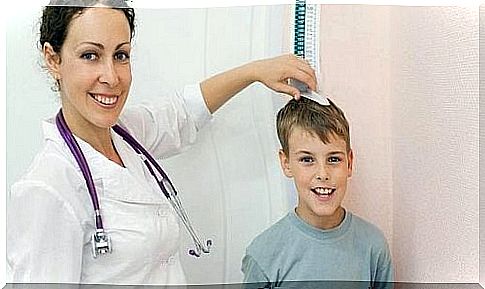Growth Hormone Deficiency In Children

The d growth hormone efficiency or GH deficiency is an uncommon disorder child. It is caused by the poor production of this substance by the pituitary gland, located at the posterior base of the brain.
It can be caused by a brain injury, the presence of a tumor or having received some type of radiation to the head. There are also other diseases that are capable of producing GH deficiency.
This pathology is not hereditary. In many cases, the cause of this condition is unknown; there are even children who suffer from it from birth. Furthermore, we have seen a relationship between this deficiency and congenital deformities, such as in the case of cleft lip and cleft palate.
The deficiency of the hormone mentioned could be related to the insufficient presence of other hormones, such as corticotrophin, gonadotropins, thyrotrophins and vasopressin. These hormones regulate important biological processes.
Continuous pediatric evaluation allows for early detection of lack of growth hormone in order to take appropriate clinical measures. Parents or guardians of the child should be aware of warning signs. In this way, they will be able to have an accurate diagnosis to deal with this abnormality in a timely manner.
Possible Signs of GH Deficiency in Children
The most obvious sign of suspected GH deficiency is the child’s short stature in relation to others of the same age. Slow growth is noticeable in the size of the face and extremities, as well as in the body, which has a more robust appearance.
Likewise, there is little muscle development and very small penises in boys. Glucose is deficient in the blood and delays the onset of puberty.
On the other hand, we must also look at the child’s self-esteem. She may feel physically different from her peers and therefore more vulnerable.

Diagnosis of growth hormone deficiency
Periodic medical check-ups include monitoring the child’s growth curve in a comparative chart. It is in this type of analysis that a deficiency in this regard can be detected.
One of the first tests done on a child when in doubt is a hand x-ray. Its development is able to reveal bone age and body growth rate. Another test that allows you to determine a person’s bone age is dual-energy radioabsorptiometry.
Your doctor will most likely order a blood test to find out what your IGF level or type 1 insulin growth factor is.
One way to detect the disorder is to cause growth hormone to be generated through drugs that stimulate the pituitary gland. Once administered, the body response is assessed.
Other endocrinological tests include determining the production of gonadotropin-releasing hormone (GnRH).
Finally, an MRI of the brain can be performed. With this, it seeks to assess the normality of the gland that produces the hormone or the presence of any other pathology causing the disorder.
Clinical treatment of growth hormone deficiency
The treatment to deal with growth deficit caused by hormones consists in the prescription of a medication. It is a synthetic version of the hormone that is administered through subcutaneous injections. The doctor will determine the dose, frequency and duration of medication; treatment can last into adulthood.
With GH deficiency, the child grows less than five centimeters per year; with proper treatment, it can grow to twenty-five centimeters in a year. It’s a great result compared to the side effects that can occur, which are generally mild to moderate.

Some of these effects are:
- Breast augmentation in men
- Scoliosis .
- Muscle and joint pain.
- Inflammation of the upper and lower limbs (hands and feet).
- Headache.
- Mild hypothyroidism.
More rare and less frequent are serious side effects ; examples are headache with impaired vision, pancreatitis or hip bone problems.
What will ensure that the treatment of growth hormone deficiency produces the desired results is the timely diagnosis. In this way, those who suffer from the problem can reach ideal body development and a normal height in adulthood.









